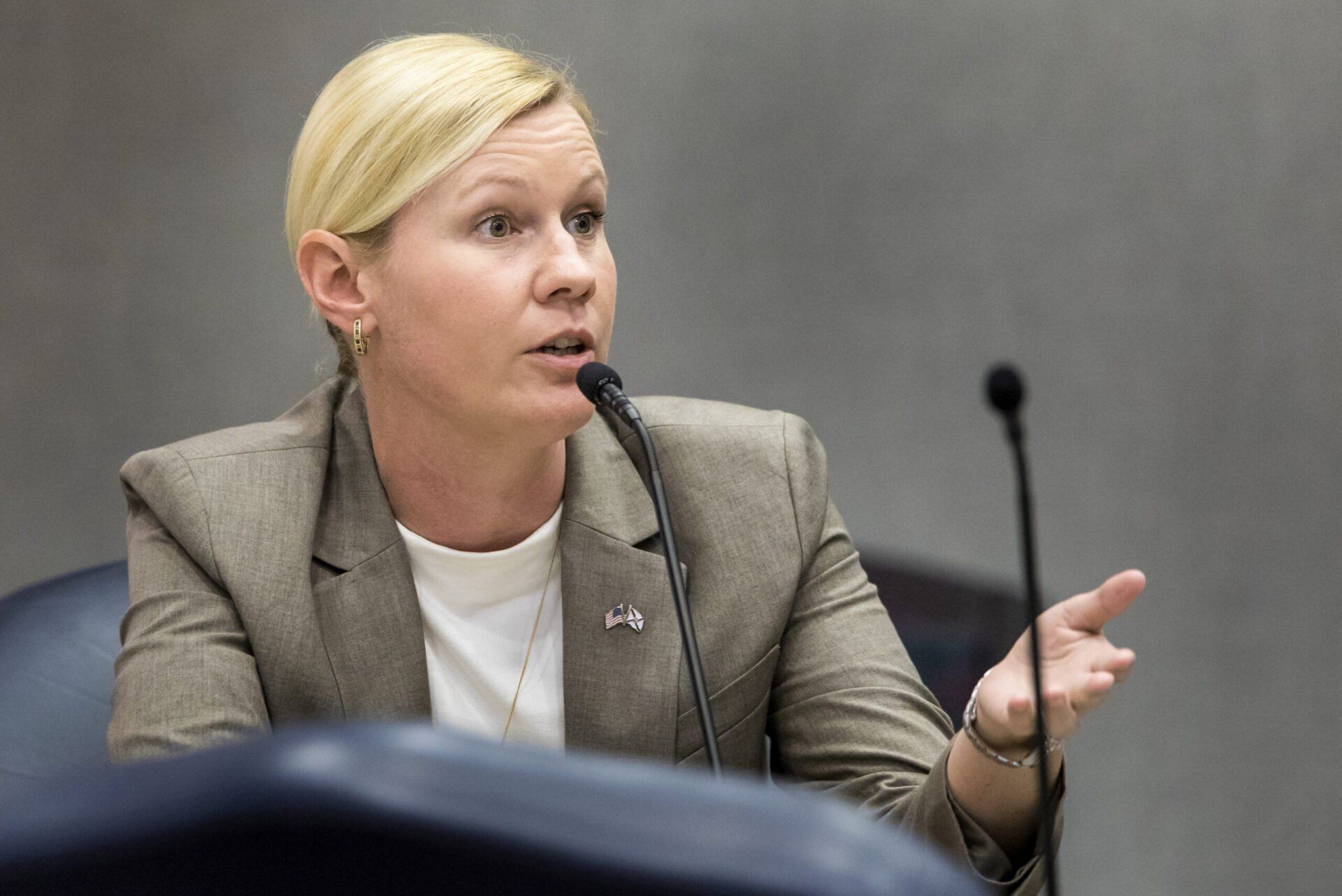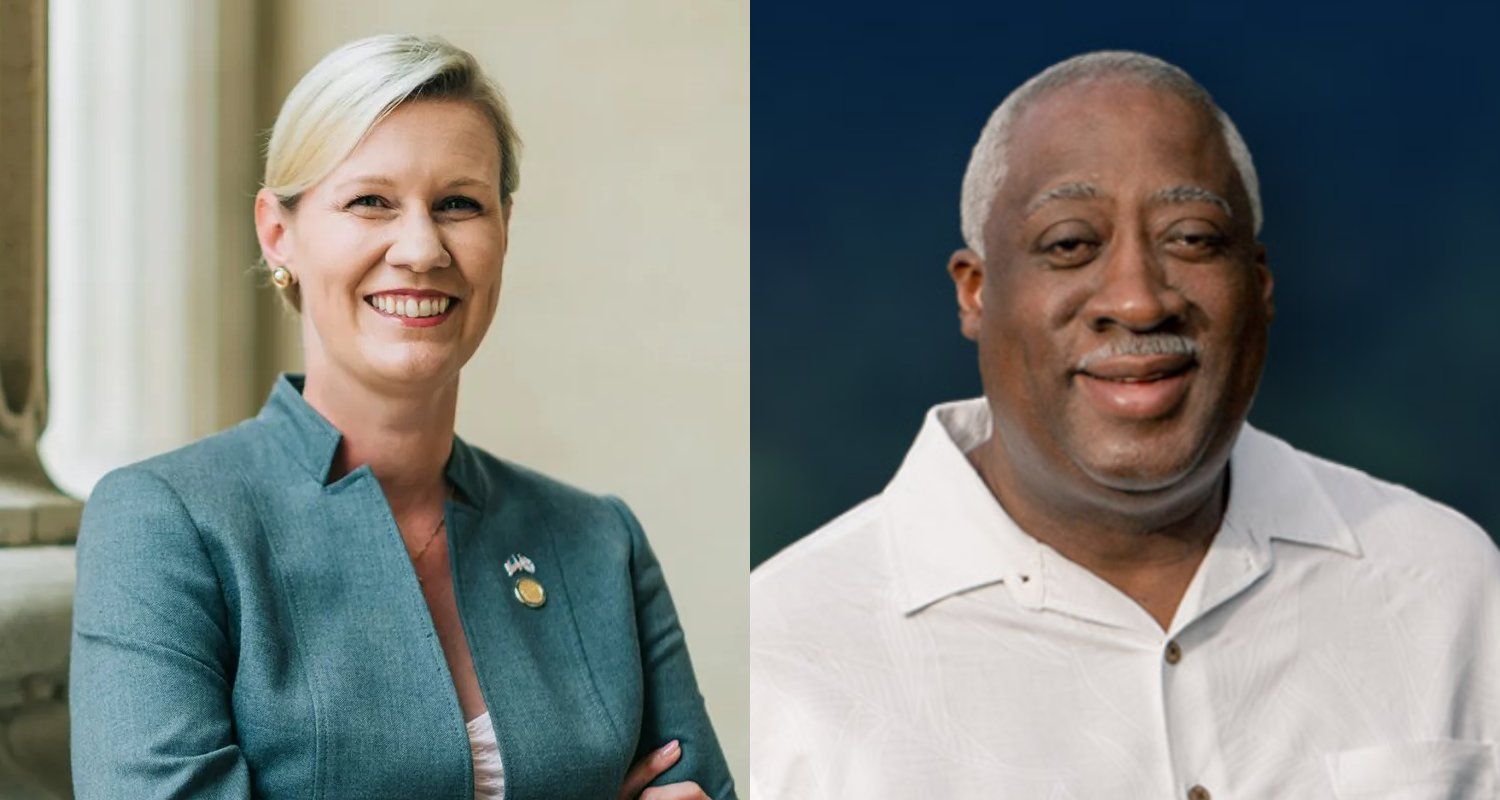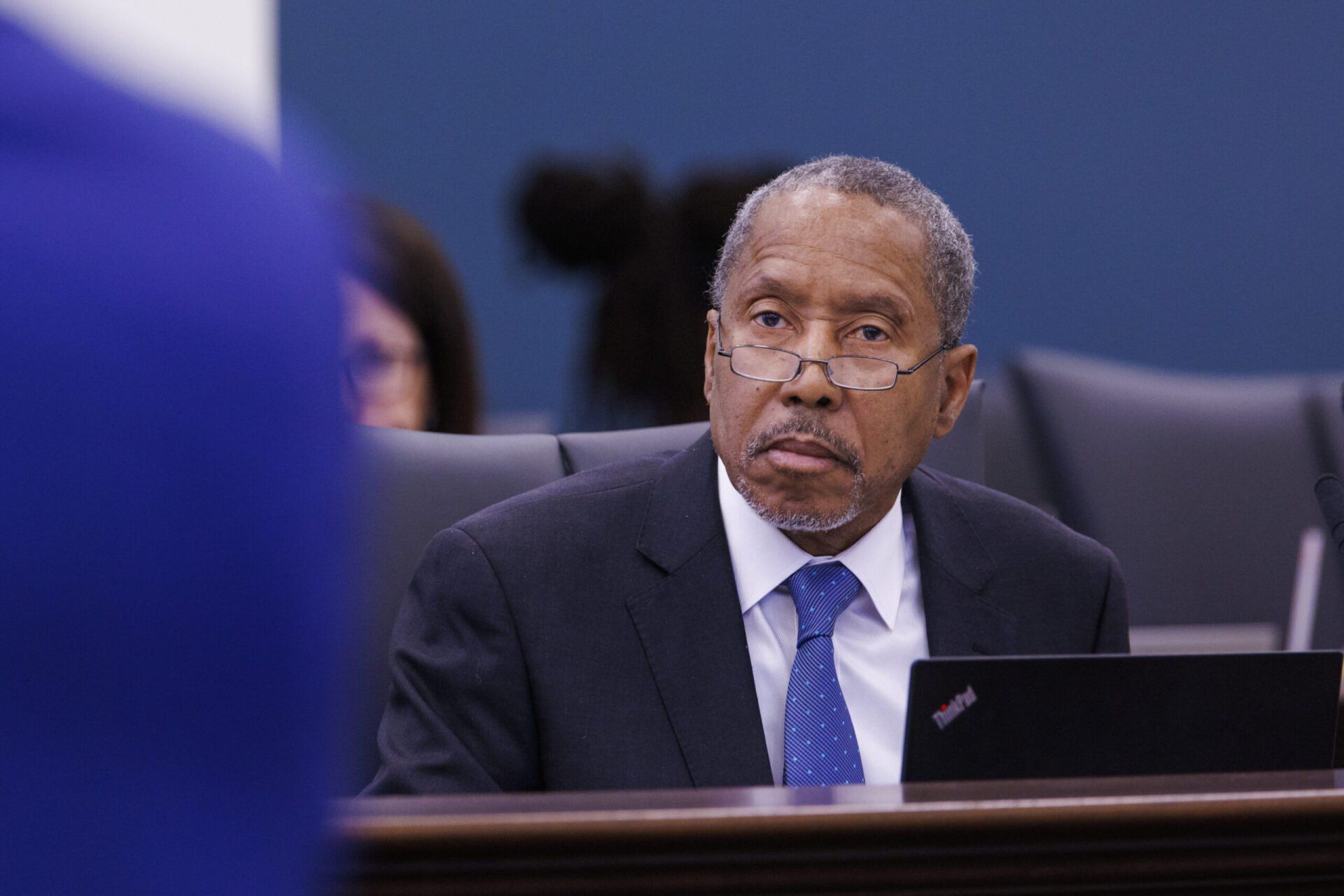On the Issues
Get Involved
Contribute
I understand the issues facing our community and will fight for hardworking Floridians to make Volusia a better place for all of us, empowering Volusians with solutions and results.”
Campaign News

https://newsdaytonabeach.com/stories/republicans-return-disney-contributions-as-lawsuit-challenges-dont-say-gay-bill,11234 Sean Mooney - News Daytona Beach | Ryan Dailey - News Service of Florida A number of Florida’s Republican lawmakers, including some in Volusia and Flagler, are returning campaign donations made by Disney for the company’s response to Florida’s Parental Rights in Education Bill , known by critics as “Don’t Say Gay.” Rep. Elizabeth Fetterhoff (R-DeLand) is one of those lawmakers returning their Mickey money, following an announcement she made on Thursday (March 31). “Due to the recent actions and statements made by the Walt Disney company regarding HB 1557 , Parental Rights in Education, returning their contributions was the right thing to do,” said Fetterhoff in the statement. “I stand with Governor DeSantis, Speaker Chris Sprowls, and most importantly Florida’s parents in support of their parental rights and the ability for them to make decisions regarding the education of their children.” Campaign records show Disney donated $2,000 to Fetterhoff’s campaign in 2021. Those contributions were made by Disney Gift Card Services and Disney Destinations LLC. Both contributions were worth $1,000 each and were made on September 24, 2021. Also returning donations, per an article from the Daytona Beach News-Journal , is Rep. Webster Barnaby (R-Deltona). Barnaby confirmed this through a text message sent to the newspaper. Records from the Florida Division of Elections shows Barnaby also received $2,000 from Disney, again in two $1,000 payments. The first was made on February 2, 2021—from Disney Gift Card Services, Inc.—and the second was made on July 23 of that year—from Disney Photo Imaging LLC. The same report from the News-Journal says Sen. Jason Brodeur (R-Lake Mary), and representatives Tom Leek (R-Ormond Beach) and Paul Renner (R-Palm Coast) received contributions from Disney but did not respond to comment on whether they planned to return the money or not. Between the three, their campaigns received almost $200,000 between 2016 and 2020. Rep. Joe Harding (R-Williston) is the sponsor of HB 1557 and he was the first to return his contributions to Disney. The company donated $3,000 to Harding’s campaign in January 2021 with three payments of $1,000 from Disney Gift Card Services, Disney Photo Imaging and Disney Destinations LLC. Almost $130 in in-kind donation for food and drinks related to a campaign event was also donated by Disney. Republicans and the entertainment giant have been at odds since Disney spoke out against the passage of the bill. That garnered some controversy for the company, which was derided for not speaking out sooner. That led to the Human Rights Campaign to refuse any future Disney contributions. Democrats also dealt their own blow to Disney when the Florida Democratic Party said it will choose new dates and venues for its Leadership Blue gala, which was initially scheduled to be held at Disney. Most recently, Rep. Spencer Roach (R-Fort Myers) said he and other lawmakers were discussing a repeal of a special legislative act that created the Reedy Creek Improvement District—a special administrative zone that serves as the site of the company’s entertainment epicenter, Walt Disney World. The Florida legislature created the Reedy Creek Improvement District in 1967. The district, which encompasses about 25,000 acres of land in Central Florida, was made responsible for paying the cost of municipal services like power, water, and waste management. Disney, one of Florida’s largest employers with 77,000 employees in the state alone, essentially controls the Board of Supervisors for Reedy Creek. Under the bill, instruction on sexual orientation and gender identity is prohibited in kindergarten through third grade. It additionally requires that such instruction in other grades is “age-appropriate” in accordance with state academic standards. Sexual Orientation, Gender Identity Law Draws Quick Challenge This section was contributed by Ryan Dailey of the News Service of Florida Three days after Gov. Ron DeSantis signed the measure, LGBTQ-advocacy groups, parents, students and a teacher filed a federal lawsuit Thursday challenging a new law that includes barring instruction on sexual orientation and gender identity in early school grades. The lawsuit, filed in the federal Northern District of Florida, seeks to block Florida from moving forward with the law, which is set to take effect in July. While DeSantis and Republican lawmakers describe the law as boosting parental rights, it has drawn national attention as critics dubbed it the “don’t say gay” bill. DeSantis, the State Board of Education, the state Department of Education and Education Commissioner Richard Corcoran are named as defendants, along with the school boards in Manatee, Sarasota, Miami-Dade, St. Johns and Jackson counties. The challenge focuses on a part of the law (HB 1557) that would prohibit instruction on sexual orientation and gender identity in kindergarten through third-grade and require that such instruction in older grades is age-appropriate in accordance with state academic standards. Lawyers for the opponents, including the LGBTQ-advocacy group Equality Florida, argue in the lawsuit that the measure is discriminatory and “aims at sexual orientations and gender identities that differ from heterosexual and cisgender identities.” The 80-page complaint alleges that the law violates constitutional free-speech and equal-protection rights. Also, it contends that the law violates due-process rights because of “vagueness.” “H.B. 1557 piles one violation on top of another. It offends principles of free speech and equal protection by seeking to censor discussions of sexual orientation or gender identity that recognize and respect LGBTQ people and their families. It offends due process by using broad and vague terms to define its prohibitions — thus inviting discriminatory enforcement and magnifying its chilling effect on speech. And it arises from discriminatory purposes and outdated sex-based stereotypes that offend deeply rooted constitutional and statutory requirements,” the lawsuit said. The lawsuit points to other parts of Florida law that require a “uniform, safe, secure, efficient, and high quality system of education” that is “made available without discrimination” on the basis of factors like race, ethnicity, gender, religion or marital status. It also cited “inclusivity efforts” by local school districts that focused on LGBTQ students. “H.B. 1557 seeks to undo all of this. Although it is formally entitled the ‘Parental Rights in Education Act,’ it is popularly and more accurately known as Florida’s ‘Don’t Say Gay’ law,” the lawsuit said. DeSantis and the bill’s Republican backers have vigorously defended the measure and disputed the “don’t say gay” moniker. DeSantis has accused lawmakers who opposed the measure and other critics of mischaracterizing the bill by “sloganeering.” The governor also argued that the bill’s detractors “support having woke gender ideology” in early grades. “I think that they’ve gone through sloganeering and all these things really out of desperation. Because they know they could never argue their position on the merits. They would … crumble, I think, under the weight of outrage from parents if they were actually standing on the wall and saying that they support those things,” DeSantis said Monday before signing the bill. House Speaker Chris Sprowls, a Palm Harbor Republican who joined DeSantis for a bill-signing event, echoed the governor’s comments and took issue with objections to the bill by President Joe Biden’s administration and high-profile celebrities. “This was super easy to figure out what this bill did. And yet, people lied about it. The media lied about it. Advocates lied about it. Whether it was in the White House press room, or whether it was last night (Sunday) at the Oscars, there were lies about it. And the governor’s right, they were intentional,” Sprowls said.

https://floridapolitics.com/archives/512986-elizabeth-fetterhoff-returns-disney-donations-amid-parental-rights-bill-response/ DeLand Republican Rep. Elizabeth Fetterhoff has become the third Republican to announce her campaign is returning donations made by Disney in response to the entertainment giant’s public stance on “parental rights” legislation ( HB 1557 ), dubbed the “Don’t Say Gay” bill by critics. Since January 2021, Disney has donated $2,000 to Fetterhoff’s campaign in $1,000 increments — the max an entity or individual can donate. Those contributions were made by Disney Gift Card Services and Disney Destinations LLC. “Parents, who are their children’s first teachers, should always have a voice and decision making rights in the education of their children,” Fetterhoff said in a statement. “I stand with Governor (Ron) DeSantis, Speaker Chris Sprowls, and most importantly Florida’s parents in support of their parental rights and the ability for them to make decisions regarding the education of their children.” The entertainment monolith and Republican leadership have been at odds during the last few weeks because of the bill. Fetterhoff joins two other Republican lawmakers — Reps. Joe Harding and Randy Maggard — who also decided to return the donations from Disney. Harding, who sponsored the House bill, announced he returned the donations on Tuesday , after DeSantis signed the Parental Rights in Education bill Monday . The signing prompted harsh criticism from Disney. The corporation immediately came out with a statement after the bill signing , saying the legislation “should never have been passed and should never have been signed into law.” The controversial legislation governs classroom instruction on LGBTQ matters. Specifically, the bill limits classroom instruction on “sexual orientation and gender identity,” a move Republican leadership says would bolster parental rights. The bill follows up on last year’s “ Parental Bill of Rights ,” which said public schools cannot infringe on the “fundamental rights” of parents to direct the upbringing of their child. The measure would ban classroom “instruction on sexual orientation or gender identity” for students in kindergarten through third grade, or “in a manner that is not age-appropriate or developmentally appropriate for students in accordance with state standards.” The legislation does not restrict the topics from being barred across all ages if the school district deems the instruction age-inappropriate. Parents who think a classroom discussion was not age-appropriate or who are unsupportive of a district’s policies would be able to sue for damages and attorneys fees. Disney initially came under fire from Democrats for not taking a stronger stance against the controversial bill as it progressed through Tallahassee. During that time, the bill picked up vocal opposition, including hours of impassioned debate and protest from students . It even garnered national flak, from the White House to this year’s Oscar ceremony . The Governor slammed bill opponents at the signing Monday, saying those who disagree with the legislation “support sexualizing kids in kindergarten.” Notably, Disney is one of the state’s largest employers and carries political weight in the Legislature, making significant donations to Republican leadership and some Democrats. In addition to instructional guidelines, the legislation also would limit confidentiality between students and school personnel, requiring that a school district “may not adopt procedures or student support forms that prohibit school district personnel from notifying a parent about his or her student’s mental, emotional, or physical health or well-being, or a change in related services or monitoring, or that encourage or have the effect of encouraging a student to withhold from a parent such information.” School personnel only are permitted to withhold such information from a parent “if a reasonably prudent person would believe that disclosure would result in abuse, abandonment, or neglect,” the bill reads. There is already talk of a lawsuit to overturn the legislation. Equality Florida, one of the state’s largest LGBTQ+ advocacy organizations, announced the group is looking to pursue legal action against the legislation after its passage in the Senate . The legislation is set to take effect July 1, before the start of the new school year.

https://newsdaytonabeach.com/stories/election-2022-fetterhoff-barnaby-both-file-for-house-district-29,11210 Daytona Beach, FL - As some lawmakers play musical chairs , local representatives Elizabeth Fetterhoff and Webster Barnaby both file to run for the same district. Originally, Fetterhoff and Barnaby represented separate districts in the Volusia County area; with Fetterhoff representing House District 26 and Barnaby HD 27, two districts that cover parts of the county. However, under the House Map 8103 proposal, both of their jurisdictions will be taken over by House District 29. Data from the Florida Division of Elections confirms that both representatives have filed to run in District 29. Two other candidates have also filed, Richard Santos and Luther “Luke” Dower—who is the only Democrat currently filed in that race. Fetterhoff secured her spot in 2018 after beating out now-former Rep. Patrick Henry with a mere 61 vote lead. She later defended the seat against Henry in 2020, this time securing over 50 percent of the vote. Barnaby first won the 2020 Republican Primary in his current district, then later defeated Dolores Guzman with almost 50,000 votes to her 38,000. So far, experts have had some difficulty in predicting just exactly how a race in HD 29 will go. Nearly half of the district is made up of Fetterhoff’s current district, while the southern portion of the district is in Barnaby’s half. If anything, Barnaby could have a slight lead since the district also includes the entirety of Deltona, where Barnaby served on the city council from 2012 to 2020. But, the same district also includes DeLand, which was represented by Fetterhoff. Another local leader has also filed to seek a spot in Tallahassee as a representative, but his fight will be south of Barnaby and Fetterhoff. Port Orange City Councilman Chase Tramont filed to run for the upcoming HD 30, which will include southern Volusia from Port Orange down towards the middle of Titusville. He initially had intentions to run for the District 2 seat on the Volusia County Council, but instead decided to run for state representative .
https://floridapolitics.com/archives/505346-bill-separating-teacher-evaluations-from-collective-bargaining-passes-house/ 'Here we go again, another attack on public education and our educators.' A bill that would allow school districts to keep teacher evaluations out of collective bargaining talks with teachers passed the House Monday. HB 1203 , sponsored by Republican Rep. Elizabeth Fetterhoff, passed the House 76-37 along party lines. The bill specifies that instructional evaluation procedures are not subject to mandatory collective bargaining, leaving it up to school districts to decide whether terms about the evaluation process could be used during collective bargaining. The legislation comes as Florida is facing a statewide teacher shortage that is expected to get worse. The Florida Board of Education reported recently there are currently about 4,500 teacher vacancies, with that number expected to double by the end of the academic year. The Florida Education Association, the largest teachers union in the state, publicly opposed HB 1203, claiming it will push more teachers out of schools by furthering regulations on teacher pay and collective bargaining. During debate on the bill, Democrats decried the limit to collective bargaining as unconstitutional and something that will push teachers away from Florida. Rep. Felicia Robinson, who works as an educator, said the bill was an attack on teachers. “Here we go again, another attack on public education and our educators,” Robinson said. “This bill is another attempt this Session to make it less possible to be employed or have a career in public education.” Rep. Michael Grieco took issue with an amendment to the bill that tripled its size and added the controversial change right before its third committee stop. He also said he thought another part of the bill, which limits how much teachers with long-term experience can get in evaluation bonuses, will push teachers out of the field. “You all are cutting experienced teachers’ salaries by a third,” Grieco said. Fetterhoff defended her bill, arguing that allowing districts to take bargaining off the table will ensure the evaluation process is not being compromised. “They should not have the ability to hold up the collective bargaining process because they do not want to be evaluated according to the way the state and the Superintendent (have) determined it should be,” Fetterhoff said. “True collective bargaining should not be something that brings evaluations to a standstill.” The legislation also makes several changes not brought up in criticism of the bill. One of the changes establishes a first-degree misdemeanor penalty for school employees who fail to report an incident of an authority figure engaging in or soliciting sexual, romantic, or lewd conduct with a student. Another portion strengthens the teacher background screening process. The legislation now needs the Senate’s stamp of approval before going to Gov. Ron DeSantis’ desk.

https://floridapolitics.com/archives/500456-bill-promoting-certified-peer-specialists-for-substance-abuse-disorders-passes-legislature/ The measure has been a longstanding priority for Sen. Darryl Rouson. A bill that would establish standards for certified peer specialists and allow them to be part of the state’s alcohol and drug abuse delivery system is on its way to the Governor after the House passed the bill 114-0 Thursday. SB 282 had previously passed the Florida Senate earlier this month unanimously. The bill amends state law to label certified peer specialists as an essential part of a coordinated system of care for the treatment of substance use disorder. The measure has been a longstanding priority for Sen. Darryl Rouson, a St. Petersburg Democrat. Rouson, who has in the past battled alcohol and cocaine addictions, has been sober for more than 20 years. Rouson has used his experiences to help push for changes to the state’s substance abuse laws. Peer specialists are persons who have recovered from substance use disorder (SUD) or mental illness who support a person with a current substance use disorder or mental illness. According to a staff analysis of the bill, SUD occurs when an individual chronically uses alcohol or drugs, resulting in significant impairment, such as health problems, disability, and failure to meet major responsibilities at work, school or home. About 40.3 million people aged 12 or older in 2020 had a substance use disorder within the previous year, according to the 2020 National Survey on Drug Use and Health. The bill requires peer specialists to have been in recovery from a substance use disorder or mental illness for the past two years or be a family member or caregiver of an individual with a history of SUD or mental illness. The bill authorizes the Department of Children and Families to develop a competency test that certified peer specialists would be required to pass. The legislation also requires peer specialists to undergo background screening. But if they have a disqualifying offense in their background, they can request an exemption from the disqualification under the bill. In a prepared statement, Florida Association of Managing Entities CEO Natalie K. Kelly thanked Rouson and House bill sponsor, Rep. Elizabeth Fetterhoff, for their perseverance to getting the bill passed. “Peer specialists play a vital role in behavioral health services, as they use their own recovery experiences to help those seeking treatment for substance use disorder and mental illness. Nothing compares to getting help from someone who has faced similar challenges,” Kelly said. The measure comes as the number of drug overdose deaths in the nation is on the increase. The number of drug overdose deaths in the U.S. rose by nearly 29% over a 12-month period ending in April 2021, to an estimated 100,306, according to the National Center for Health Statistics at the Centers for Disease Control and Prevention. Opioids accounted for more than 75% of those overdose deaths.

https://www.floridabar.org/the-florida-bar-news/bill-to-speed-delivery-of-domestic-violence-injunctions-moving-through-the-house/ A House panel has approved a measure that sponsors say could save lives by speeding the delivery of domestic violence injunctions. The House Justice Appropriations Subcommittee voted 14-0 on February 3 to approve HB 905 by Rep. Elizabeth Fetterhoff, R-Deland. The measure would require court clerks to electronically transmit protective injunctions — and law enforcement agencies to receive them — within 24 hours after being issued by a court. “Currently, there are a number of law enforcement agencies that do not accept electronically transmitted domestic violence injunctions from clerks’ offices within their county or outside of their county,” Fetterhoff said. “This could allow for a petitioner to be harassed, injured, or tragically, killed.” Fetterhoff told the panel that only 30 counties currently transmit protective orders electronically within their counties, and 28 outside of their counties. The measure would apply to protective orders for domestic violence, repeat violence, sexual violence, dating violence, and stalking. There were more than 73,907 injunction applications filed in Florida in 2020, although the figures declined in 2021 because of the pandemic, Fetterhoff told the committee. Between 2016 and 2019, the number of applications ranged from 83,000 to 85,000, Fetterhoff said. One domestic violence injunction issued December 10 did not reach the intended law enforcement agency until five days later, and was not served until December 16, Fetterhoff said. Rep. Michael Gottlieb, D-Sunrise, and a criminal defense attorney, said the bill would bring Florida into the 21st century. “What a great bill, modernizing how we operate, making the system more efficient, protecting people, and reducing costs.” HB 905 cleared the Civil Justice and Property Rights Subcommittee 18-0 on January 27. It still faces a hearing in Judiciary before reaching the House floor. A companion measure, SB 654 by Sen. Janet Cruz, D-Tampa, cleared Judiciary 10-0 on January 31 and still faces hearings in Children, Families, and Elder Affairs and Rules. The 60-day legislative session adjourns March 11.

